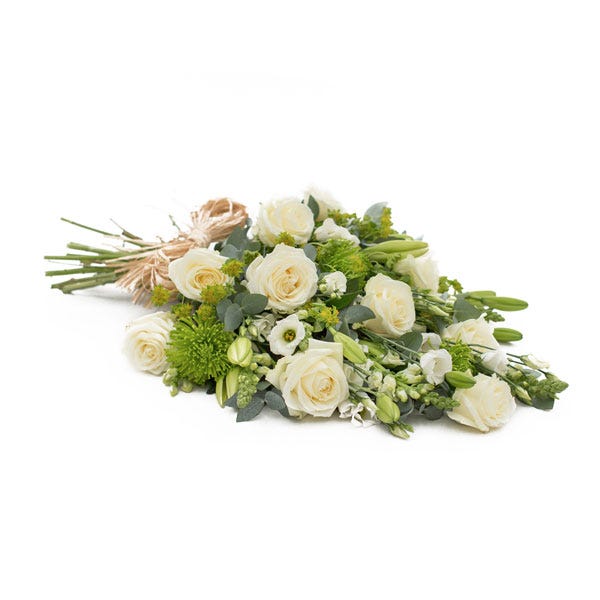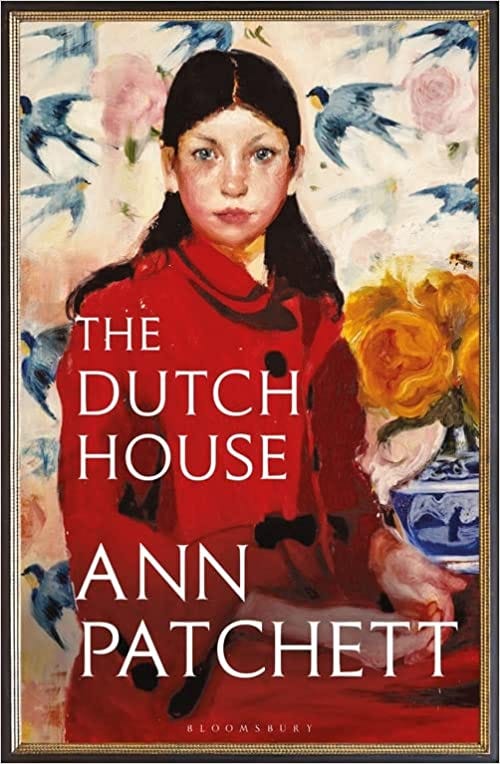There are only two ways of travelling to a funeral in my experience - the official car or a private car. In the latter, talk flows quite freely. Maybe it’s full of cousins you haven’t seen for ages, so there are reminiscences of the deceased, or more likely some family gossip you’re hearing for the first time. Sometimes you’ve been asked to give a stranger a lift, with stilted conversation as to how you both know the deceased, and how people don’t give flowers any more, “It’s all donations these days, I think it’s a shame”, and you agree although privately you don’t.
The atmosphere in the official car is quite different. Here you are in the presence of the grieving relatives and even the very car you travel in, a sleek and very solemn black limousine, subdues any attempt to speak, even if you were inclined, in anything other than hushed tones. In the past if I travelled in the official car, I was probably the organiser, (six in all, so far in my life). In those cases, I was too preoccupied with the arrangements, worrying whether we’ve left Aunty Ethel on the doorstep, and if we had enough Orders of Service, to engage in any meaningful conversation.
Last week, it was my sad privilege to go to a funeral in the official car. A Jaguar since you ask. It was a funeral I had not organised and had no function except as the mother in law of the grieving son. In French a mother in law is called ‘la Belle Mère’ which sounds much nicer, and my opposite Belle Mère had died after an illness and would be sadly missed, not least by her son and nine year old grandson.
We followed the hearse at a very sedate pace, and lost the following posse of private cars at the first large roundabout in a commuter town. Fortunately, they had satnav's and they found their way to the crematorium without any problems by the direct route of several dual carriageways. Our car, on the other hand, made a slow passegata across Essex, on country roads, presumably because dual carriageways are too fast and undignified, and also the funeral director timed us to arrive at the crematorium at precisely the right time to enter.
The limousine contained six passengers in two rows behind the driver, who was separated off from us by a full length Perspex screen. We had assumed, correctly, that the grieving son would want to sit directly behind his mother’s hearse. He was overwhelmed at the start of the journey, and we sat awkwardly while his wife comforted him. We had a 25 minute drive ahead of us, and I wondered if we would spend it all in silence, or if we should be summoning appropriate phrases somehow. As we approached the roundabout the hearse waited for a suitable gap for both the cars as they needed to keep in convoy. As our car pulled out a small car shot around the roundabout and screeched to a halt as we glided past. The driver hooted furiously and sped off. That broke the solemnity of the moment and everyone exclaimed in astonishment at the rudeness of the driver. I remembered the days when people stopped in the street and bowed their heads when a hearse went by. What does it say about our society when we can't spare a moment to show respect?
When we turned off the main road a ripple of desultory conversation started up as the locals in the car realised that we weren’t going their normal way, and hoped the road wasn’t still flooded. I thought, well maybe this is what we focus on - the route - it was a distraction from the sadness we felt. Someone else remarked that they hadn't realised how rural Essex was. Another, yes a lot of fields but nothing growing in them and very little grazing. We mulled over that thought for a few minutes, but no one came up with any intelligence on the subject. A couple of passengers in the back were strangers to the area and as we made our way past the rich pastures and even richer mansions, the grieving son must have felt suddenly obliged to become a rural Essex tour guide, pointing out footballer’s palaces and where the boss of a financial exchange company lived. There was much speculation as to where the rest of the convoy had got to but we acknowledged that everyone had satnav so it would be fine. That ‘scatterthought’ chat led us to the crematorium at just the right time. We played ‘spot the car’ as we passed the car park, mentally counting all the congregation in.
And so we arrived in the porch and silence fell upon the group. It was now very real and all previous conversation ceased. The service was warm and personal, perfectly organised and there were many people there in support. La belle mere’s son was bolstered afterwards by the lovely words spoken by people who knew her and who wanted him to know how much they appreciated her during her lifetime and would now miss her. As we started the (much shorter) journey to the wake, his 6’ 4” frame couldn’t take being squished up against the perspex screen and he claimed the back seat with a relieved sigh.
We sped down the dual carriage-way watching the Jaguar’s needle approaching 70mph with ease; the talk was lighter, easier and mostly of how well it went and how hungry we were. Arriving at the yacht Club on the riverside in glorious sunshine, we tipped out of the car and up to the bar. Drinks in hand, we turned to the back of the room where we could see food laid out. The barman halted us in our tracks. Not ready yet, sandwiches coming soon. So we hovered, sneaking crisps and grissini, until the sandwiches made an appearance and the buffet was declared open!
Thinking about it later, I wondered how everyone experienced the occasion. Is it a positive experience for all? For those of us on the fringes, it seemed a fitting tribute to the lady, and hopefully it gave her son closure, knowing he had said goodbye in a fitting and dignified manner, appreciating all that had been done for her during her illness.
However, the more I go to funerals, (and at my age, they are increasing every year), the more dubious I am about the value-added element. Earlier this year my Canadian cousin died and his wife wrote to me to say that at some point he would be cremated, but she wouldn’t know when that would be, and a month after his death, they would have a memorial, a celebratory party for him. I thought that was a wonderful idea for non-religious families like ours, but I realise some people may feel cheated, so it would have to be discussed with all interested parties. Last month my husband was invited to speak at the memorial of his best friend from school, someone he had known for over 60 years. The funeral had been a private affair, but the memorial had about eighty friends and relatives there and it was a joyous afternoon, with many tributes from his wife, children, friends and colleagues. I might negotiate the same when my time comes. What do you think? What will you decide?
🌸🌸🌸🌸🌸🌸🌸🌸🌸🌸🌸🌸🌸🌸🌸🌸🌸🌸🌸🌸
I’ve been reading ‘The Dutch House’ by Ann Patchett published in 2019. It deals with the aftermath of a divorce and betrayal by both parents. It sounds sad, and it is certainly poignant, but the love between the siblings makes it a joy to read.
🌺 🌺 🌺 🌺 🌺 🌺 🌺
Here’s a couple of smashing newsletters for you. The first is Julie Russell’s ‘Eat, Bake, Sing’ Julie has some great ideas for baking-related presents, so if you know anyone who would appreciate Julie’s recommendations, this newsletter’s for you, and next week she promises to send singing-related ideas!
Anyone who needs a lift and to hear inspiring words twice a week, try ‘Living and Laughing with Lou’. Lou is truly motivational and will have you believe all things are possible if you work hard and believe in yourself, which we should all believe but few of us do.
Lovely Susie Dent tweet this morning
‘Snaccident’ - the inadvertent eating of an entire packet of biscuits/crisps/etc. when you only meant to have one.
Apparently you can have a ‘gincident’ too - who knew?
The next newsletter will be in January. Until then I hope you have a shimmering Christmas and a Happy and healthy New Year!






Thank you, Sue. Funerals and memorials are tricky to navigate (in this case, quite literally) in our secular era. Writing seems to be one of the best ways to remember, memorialise, bear witness.
Sue, sandwiches are essential at wakes and to have to wait must have been difficult. I was at a hospital cafe recently with my mother when people we've known a long time but not closely sat at the next table. Out of nowhere my mother started to tell them her non-funeral plans and what she'd told us. First I'd heard of it and quite sure they didn't know how to respond.